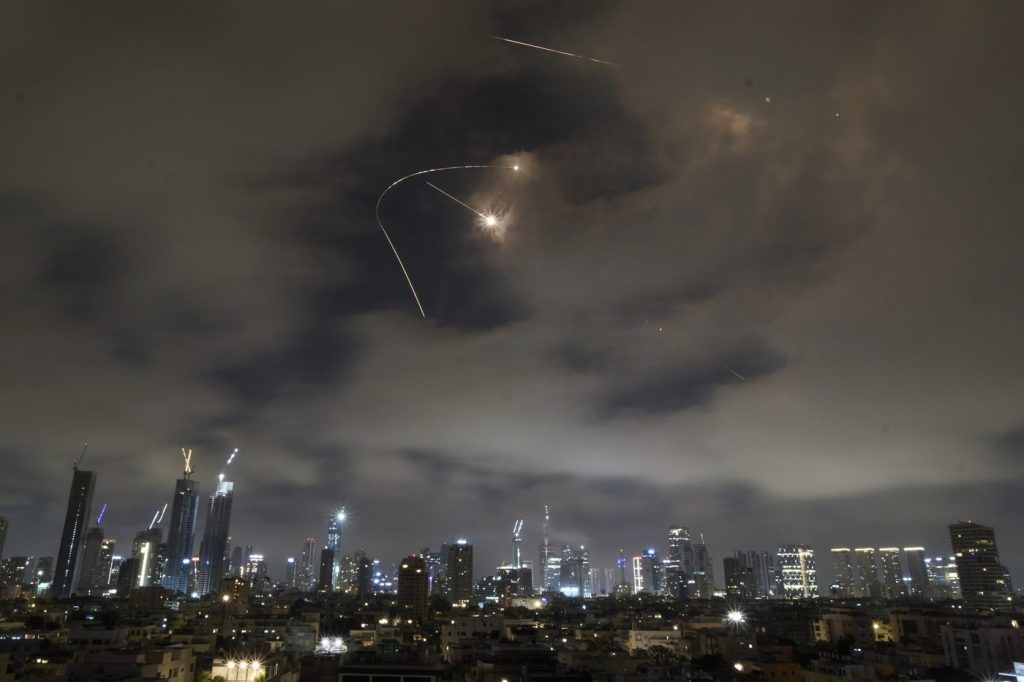TEL AVIV, Israel (AP) - Hours of discussions aimed at de-escalating the ongoing conflict between Israel and Iran did not yield any significant diplomatic progress as the war entered its second week, marked by renewed strikes from both sides. European ministers convened with Iranian Foreign Minister Abbas Araghchi for four hours in Geneva on Friday, amidst rising concerns over U.S. military involvement and potential attacks on Iranian nuclear facilities.
Although European officials expressed hope for future negotiations, Araghchi reiterated that Iran was disinclined to negotiate with the U.S. while Israel continued its military actions. He stated, "Iran is ready to consider diplomacy if aggression ceases and the aggressor is held accountable for its committed crimes.” No date has been set for subsequent negotiations.
Israeli Prime Minister Benjamin Netanyahu affirmed that Israel's military campaign against Iran would persist "for as long as it takes" to neutralize what he called the existential threat posed by Iran's nuclear program and ballistic missile arsenal. Israel's top general indicated readiness for a prolonged military engagement. However, Netanyahu's objectives may be unattainable without U.S. assistance, particularly regarding Iran’s fortified Fordo uranium enrichment facility, which can only be effectively targeted by U.S. "bunker-buster" bombs. President Trump announced he would delay a decision on American participation in the air campaign for up to two weeks.
The conflict, which erupted on June 13, has already resulted in notable casualties, with Israeli airstrikes reportedly targeting Iranian nuclear and military installations, resulting in at least 657 deaths in Iran, including 263 civilians, according to a U.S.-based Iranian human rights organization. In retaliation, Iran has launched approximately 450 missiles and 1,000 drones at Israel, most of which have been intercepted by Israel's multi-tiered air defense systems, although at least 24 fatalities have occurred in Israel alongside hundreds of injuries.
Concerns are mounting regarding the potential consequences of attacking Iran's nuclear reactors. At an emergency session of the U.N. Security Council, Rafael Grossi, head of the International Atomic Energy Agency (IAEA), warned against strikes on Iran's nuclear facilities—specifically the Bushehr nuclear power plant, where "a direct hit would result in a very high release of radioactivity to the environment." He emphasized that this site poses the most significant risks should an attack occur.
Israeli military operations have thus far concentrated on Iran's Natanz uranium enrichment facility and related laboratories, deliberately avoiding attacks on nuclear power reactors. Following initial assessments, the IAEA indicated that damage had occurred at facilities in Arak, though there was no nuclear material present, thereby alleviating fears of contamination. Iran previously committed to limiting its uranium enrichment under a 2015 agreement with world powers; however, the U.S. withdrawal from the deal prompted Iran to ramp up enrichment levels and restrict access to its nuclear sites.
While Iran asserts that its nuclear program is intended for peaceful purposes, it remains the only non-nuclear weapon state enriching uranium to 60%. Israel is widely believed to possess a nuclear weapons program but has never confirmed this. On Friday, Israeli forces reportedly targeted multiple military installations throughout Iran, including missile manufacturing sites. In retaliation, an Iranian missile struck Israel's northern city of Haifa, causing injuries to at least 31 individuals.
Iranian state media reported explosions from Israeli strikes in Rasht, amid warnings from the Israeli military for residents to evacuate the area, although communication difficulties exited with the internet shutdown in Iran. The Israeli military claims to have neutralized a majority of Iran's ballistic missile launchers, contributing to a decrease in Iranian missile assaults.
Nevertheless, recent Iranian missile attacks continued to pose a threat to Israeli cities, with the military reporting that several missiles breached Israel's air defense system. The situation remains highly volatile, with significant implications for regional stability and international diplomacy.










